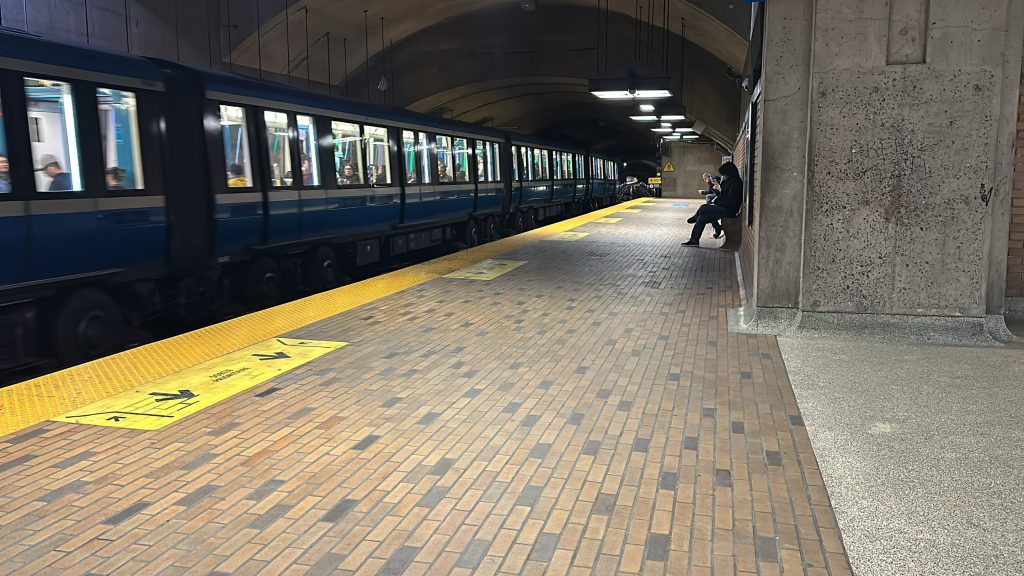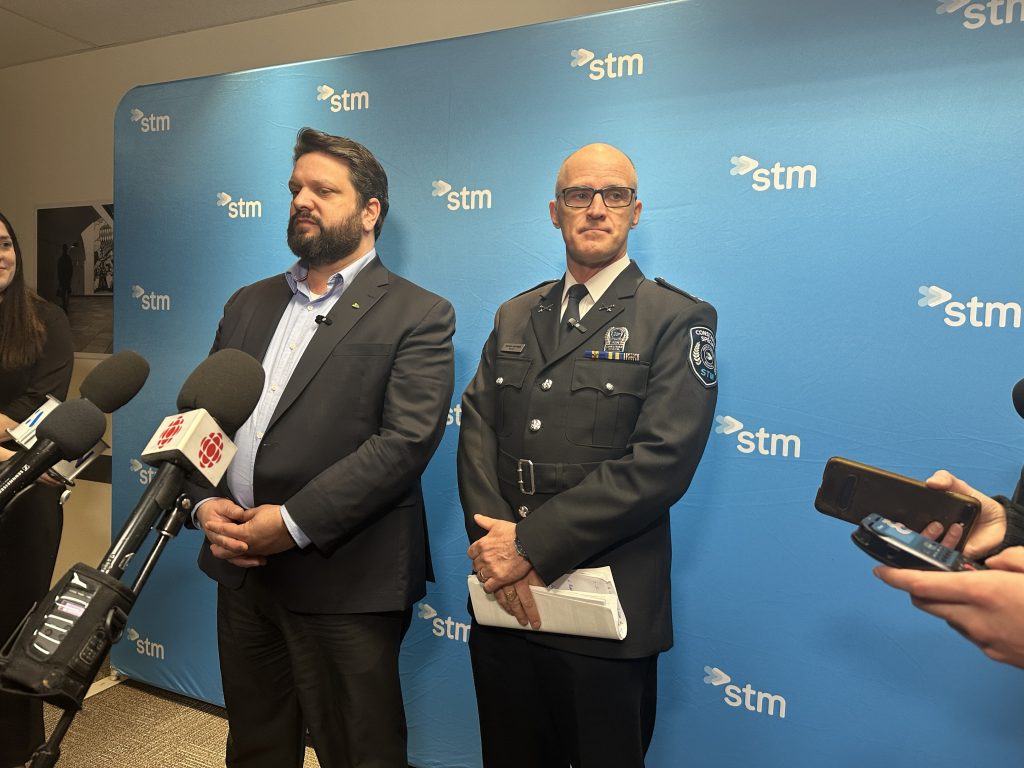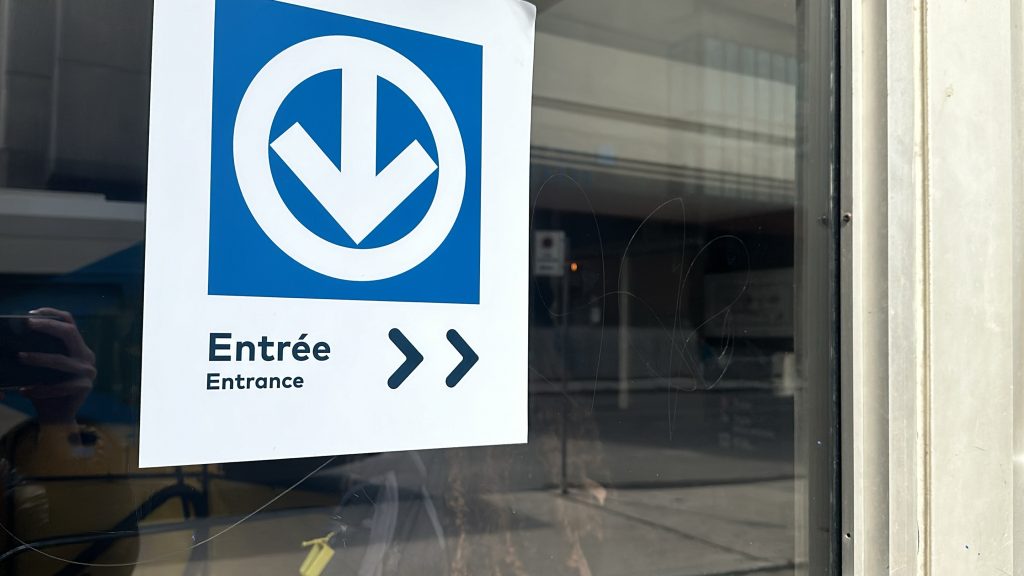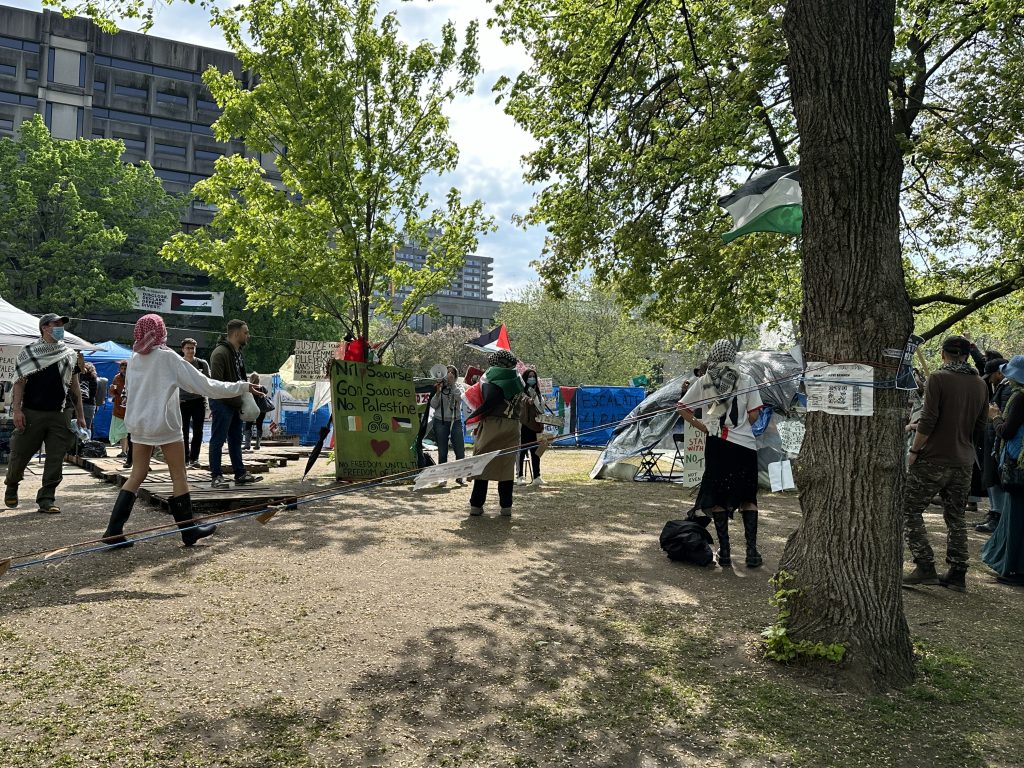Special constables being deployed in certain Montreal metro stations amid rise in mental health issues
Posted April 10, 2024 3:00 pm.
Last Updated April 10, 2024 6:31 pm.
Montreal’s transit corporation is vowing to strengthen security at certain metro stations by increasing the number of special constables on patrol.
The Société de Transport de Montréal (STM) is deploying special constables and other safety employees in teams of four to monitor the 10 stations where riders have most reported feeling unsafe.
The stations that will see increased security are: Bonaventure, Lionel-Groulx, Atwater, Joliette, Frontenac, Papineau, Beaudry, Jarry, Jean-Talon and Mont Royal.
“The main goal is to improve the level of the feeling of security, and that there will be a quick response in case of an incident,” said STM security director Jocelyn Latulippe.

The STM says it’s in response to a rise in the number of people with mental health or addiction issues in the network.
“Most of our problems are related to mental health issues, and special constables have been trained to those issues, but at the same time it takes a lot of time and we need to have support so special constables can perform their regular duties,” said Latulippe.
“There is a situation in our metro right now where we acknowledge that people sometimes don’t feel safe,” added Éric Alan Caldwell, president of the corporation’s board. “We have a safe metro system. Our security in our metro is good. That being said… we’re not in the same urban environment that we had before the pandemic.”
Caldwell says the STM is worried about losing riders because of a perception of insecurity linked to the presence of vulnerable people.

Riders who spoke to CityNews Wednesday said they did have concerns about safety and cleanliness.
“I’ve seen fights, I’ve seen lots of stuff, urination, defecation,” one person said.
“I’ve had some friends, they don’t really feel safe, some tell me the blue line, they don’t feel really safe, more my girlfriends,” added Nathan Tran.
“It mostly depends which station,” said another.
The special constables will be covering 20 hours a day, seven days a week until the end of April. But it may be extended.
“When the spring temperature is coming, when the sun will be back, warmer temperatures, we know that most of our problems related to mental health will be reduced,” said Latulippe.
Latulippe says the corporation’s goal is to reassure riders, but ultimately a greater intervention by health authorities is needed to direct people who need help to appropriate resources. Otherwise, he says the metro will remain what he called a revolving door for people who need assistance but who lack support.

Phone, text line coming to Montreal metro?
Aref Salem, leader of the city’s official Opposition, says Ensemble Montréal wants to see a dedicated phone and chat line set up – like Toronto did.
“At least you can text or call, and we can make sure within the next 90 seconds we can have a response,” he said. “Someone will call back, and they will try to resolve the problem.”
The STM says it is already in the process of implementing something similar.
“The special form that’s online… that information will be treated as soon as received, which was not the case in the past,” said Latulippe. “We improved the response, but we’re looking at it, plan something different for next year maybe, something like a texting solution.”
–With files from The Canadian Press



